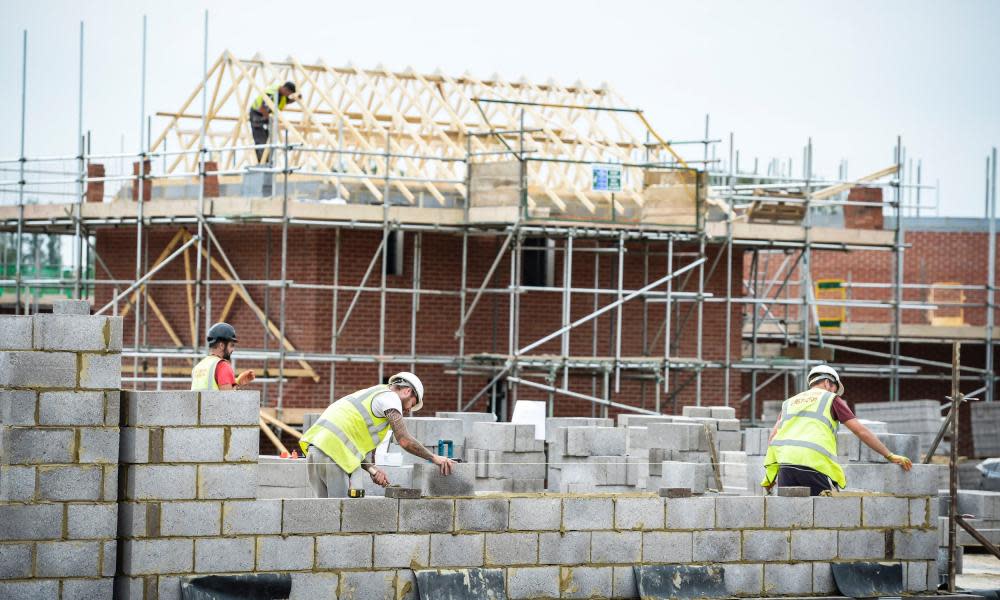The Observer view on the housing crisis | Observer editorial

As we report today, research by Shelter shows that by 2020 more than a million households are likely to find that their housing benefit doesn’t cover the rent they pay to private landlords. The consequence will be hardship, eviction and, for many, homelessness. They will be victims both of high private rents and of government restrictions on benefit, both of which stem from the failures of housing policies for more than 30 years.
Rents are high because housing is scarce and property values high, and because millions excluded from both owning homes and living in social housing have nowhere to go but the private rental sector. Benefit is being restricted not only because of generalised austerity but also because the total housing benefit bill has been pushed up by the reduction of publicly-owned housing, thanks to the right-to-buy policy introduced under Margaret Thatcher and by restrictions on local authorities’ ability to replenish their stock.
The result is that they have to pay market rates to private landlords, when they might have housed them in their own properties. The victims of this failure of policy are those least able to afford it.
This is one manifestation of a housing market which, as a government white paper said earlier this year, is “broken”. In last week’s Queen’s speech, Theresa May announced that the government would “promote fairness and transparency in the housing market”and “help ensure that more homes are built”, which meant that the white paper will be made into policy and law. But, even as it announces the “dysfunctional” nature of housing and calls it “a problem that won’t solve itself”, the document does offensively little truly to address it.
The most effective way to address housing need would be to allow local authorities to borrow to build
While it offers some practical suggestions for improving the supply of housing and a sop to renters with the banning of letting fees, it does little more than twiddle the knobs on a vast, floundering machine.
It labours under the delusion that the private sector can address housing need largely alone and that, therefore, the problem is only one of supply. Ease planning restrictions and other regulations is the reasoning, and the market will be un-broken. Even though it says that supply is the only problem, this future act of parliament does nothing to address one of the biggest issues of contemporary planning, which is the sacred status of the green belt at the expense of both other forms of green land and cities. More importantly, it ignores decades of evidence that significant public intervention is an essential part of meeting housing need. In 2015/16, a good year, 189,650 net additional homes were provided, against an estimated need of 225,000 to 275,000. Post-Brexit restrictions on labour and a cooling housing market are likely to reduce output without greatly improving affordability.
The role of government in housing is partly planning, to encourage new homes to be built in the places where they are needed, to use land well and create neighbourhoods rather than assemblages of units, to make garden cities rather than sprawl, and tall buildings that are landmarks rather than eyesores. It is also to build when private companies won’t. This is not a radical socialist agenda but established policy of different administrations, both in Britain and elsewhere, for more than a century.
The most effective way to address housing need would be to allow local authorities to borrow to build, which is constricted here but is common in many European countries. This is not throwing money away, as it goes into a long-term asset that delivers returns into an indefinite future. It should also be noted that austerity is relaxed when it comes to building an £18bn nuclear power station at Hinkley Point or the £56bn HS2 railway, even though the latter is as damaging to the green belt as any housing proposal. Housing is at least as vital as these other forms of infrastructure.
If something good is to come of the Grenfell Tower disaster, it will be the attention it brings to the current state of housing in Britain, in particular for people on low incomes. Politicians should also be motivated by the role housing played in mobilising young voters in the general election. But it seems that the current government still hasn’t got the memo.

 Yahoo News
Yahoo News 
